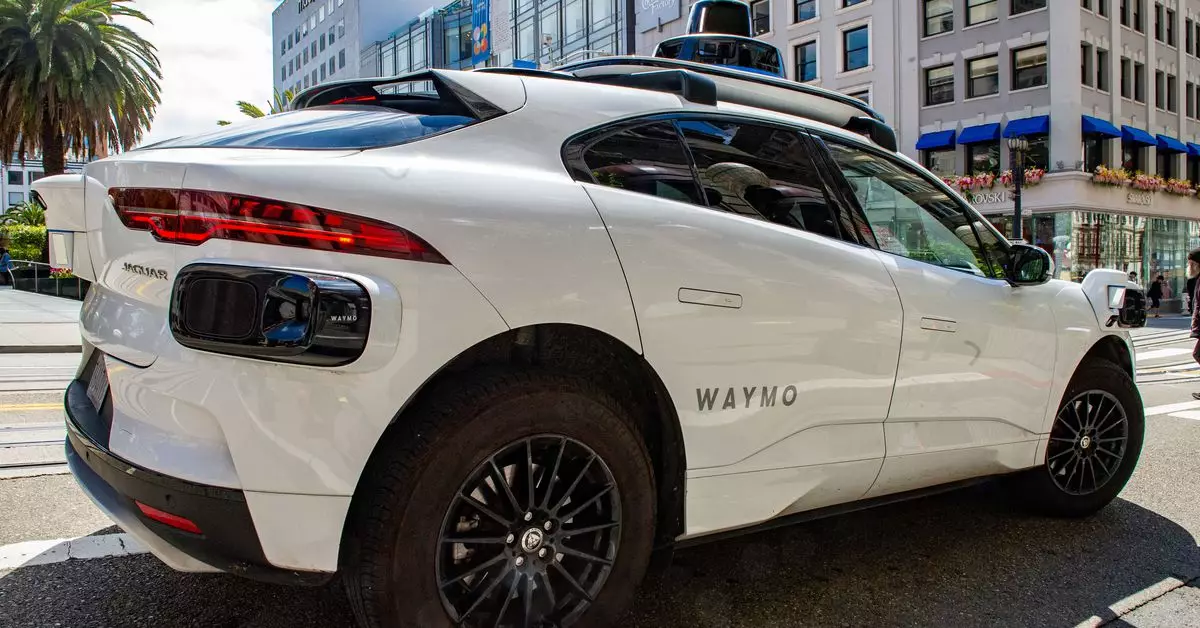Waymo, a pioneering subsidiary of Alphabet, is taking noteworthy steps by introducing autonomous vehicles to Tokyo, marking a significant milestone as it ventures outside the United States for public road testing. This bold move serves as a testament to Waymo’s commitment to pioneering advancements in autonomous driving technologies. The 25 vehicles slated for deployment in Japan will initially proceed under manual operation, tasked with the vital role of data collection. This includes understanding the intricacies of left-hand driving and mastering the complex dynamics of a bustling urban environment.
The choice of Tokyo as Waymo’s first international testing ground signifies not only strategic importance due to the city’s dense population but also highlights the company’s ambition to gather relevant data that could inform future developments. While there is speculation surrounding the establishment of a robotaxi service in Tokyo, Waymo’s spokesperson Sandy Karp stresses that the current endeavors focus primarily on learning about the local transportation milieu, rather than readying an immediate launch into rider services. This cautious approach reflects a calculated strategy, aiming to integrate the technology meaningfully into the existing transport framework.
Waymo’s collaboration with Nihon Kotsu, a well-established taxi fleet operator in Japan, is a significant aspect of this venture. This strategic partnership may foreshadow plans to harmonize autonomous vehicle deployment within local cab services, which is a model already in practice in the U.S., where Waymo has allied with ride-hailing platforms such as Uber in Austin and Atlanta.
Such collaborations are crucial as they pave the way for smoother integration into the market by leveraging established local networks. The inclusion of GO, a prevalent taxi application in Japan, within Waymo’s operational framework suggests a keen interest in creating a cohesive service that resonates with local ridership and regulatory nuances. Establishing local alliances is not just about business growth; it’s also a necessary step to gain community trust and regulatory approval, both critical in the highly scrutinized landscape of autonomous driving.
Despite Waymo’s promising trajectory in the U.S., where it operates around 700 vehicles and delivers about 175,000 paid trips weekly, the transition to Tokyo presents unique challenges. Japan’s automotive landscape is robust and intricately linked to its cultural norms and driving practices, leading to inevitable hurdles in the adaptation of technology initially developed for American streets. Furthermore, unlike the increasingly permissive regulatory environments seen in places like California, Japan’s regulations surrounding autonomous vehicles require careful navigation.
The company’s testing locales within Tokyo are strategically chosen, placing emphasis on urban hubs like Shibuya and Shinjuku. However, to ensure the safety and efficiency of operations, Waymo must prioritize establishing a comprehensive understanding of these districts’ traffic behaviors and the public’s response to robotaxi services. The approach of utilizing trained autonomous specialists, who will oversee the initial testing phases, reveals a commitment to safety first, a sentiment that remains crucial amidst public skepticism regarding self-driving technologies.
As Waymo embarks on this international expedition, it is crucial to acknowledge the larger landscape of autonomous vehicle development. Competing entities like General Motors are, unfortunately, withdrawing investment from robotaxi projects, instead opting to focus on driver-assist technologies. This landscape shift underscores the challenges faced by companies in scaling up autonomous solutions amid financial and technological pressures.
Importantly, Japan’s own automobile manufacturers, like Toyota and Nissan, have carved out their paths for robotaxi testing but are currently focusing their efforts abroad, particularly in China. This positioning illustrates an ongoing race to capitalize on the global demand for autonomous solutions rather than concentrating on domestic advancements.
Waymo’s entry into Tokyo symbolizes not only a strategic corporate maneuver but also a commitment to navigating the complex interplay of local insights and technological evolution. It reinforces the notion that while the path to full autonomy may be fraught with obstacles, the commitment to learn and adapt remains unwavering. As the global context for autonomous vehicle technology evolves, Waymo’s endeavors in Tokyo will undoubtedly furnish valuable insights into unlocking the potential of self-driving solutions worldwide. Only time will reveal whether this venture will translate into a robust, localized robotaxi service or serve purely as a research initiative, but the journey is one that is well worth observing.


Leave a Reply